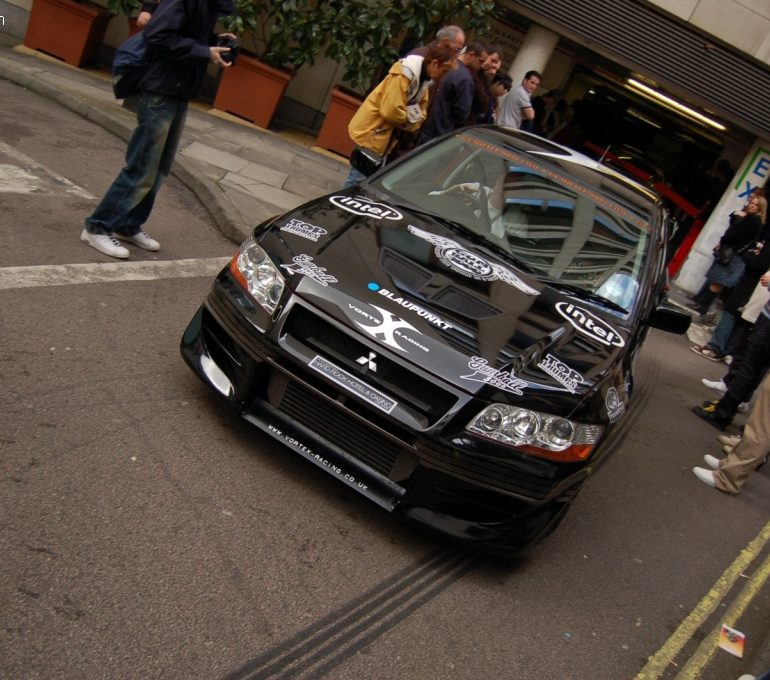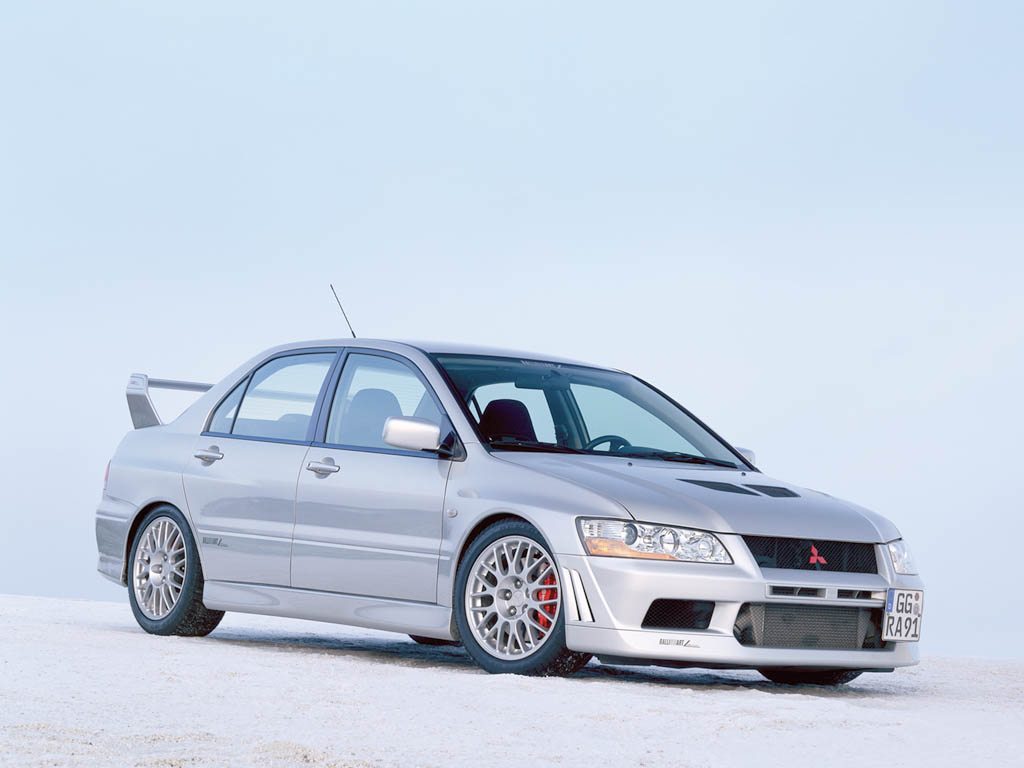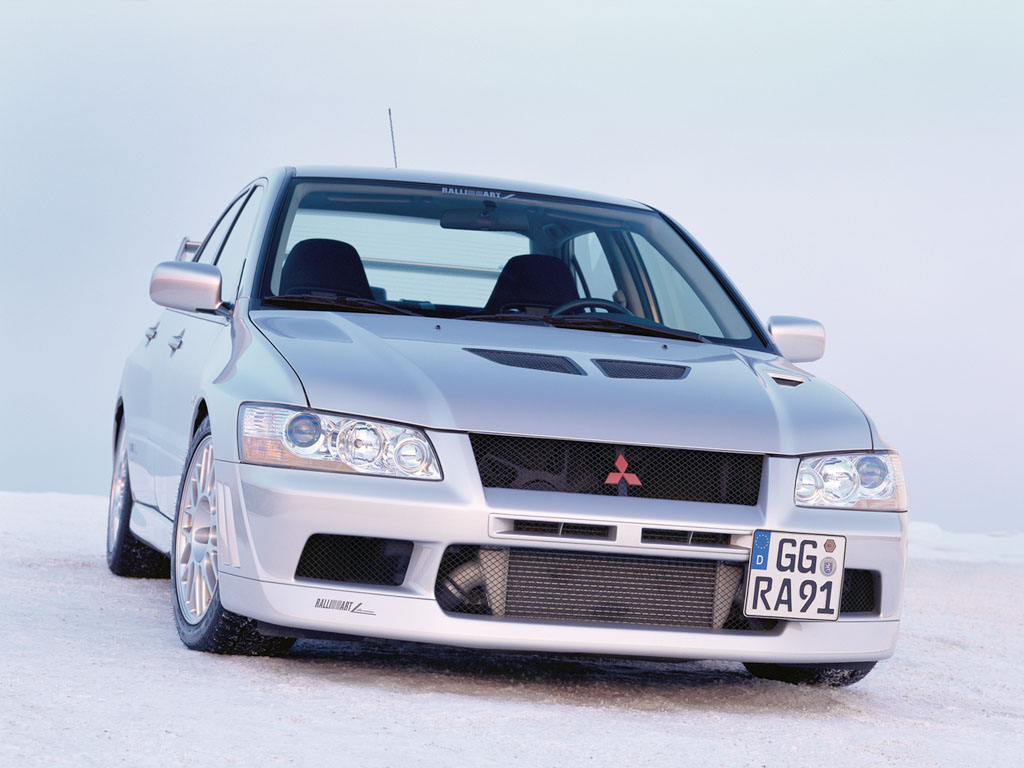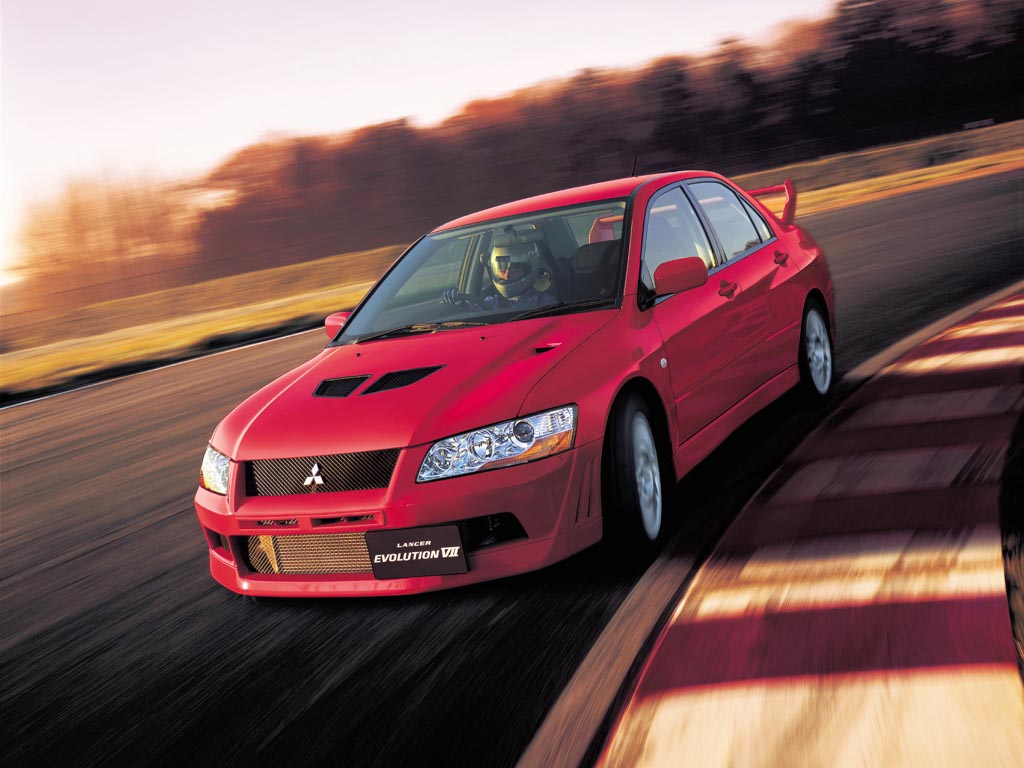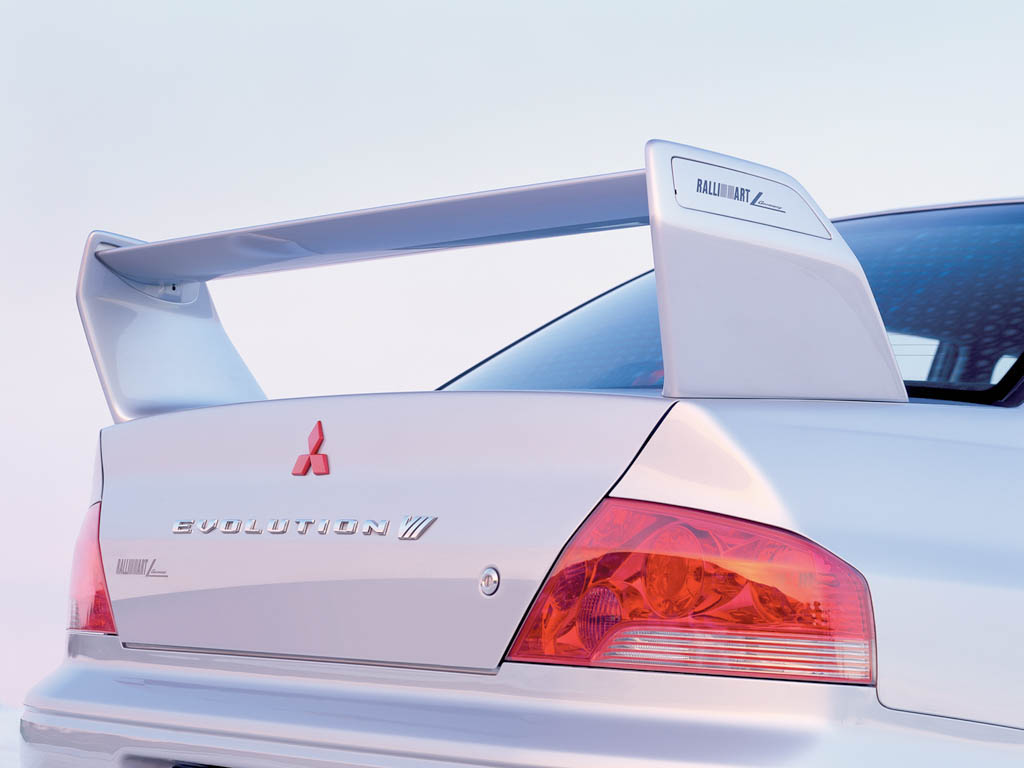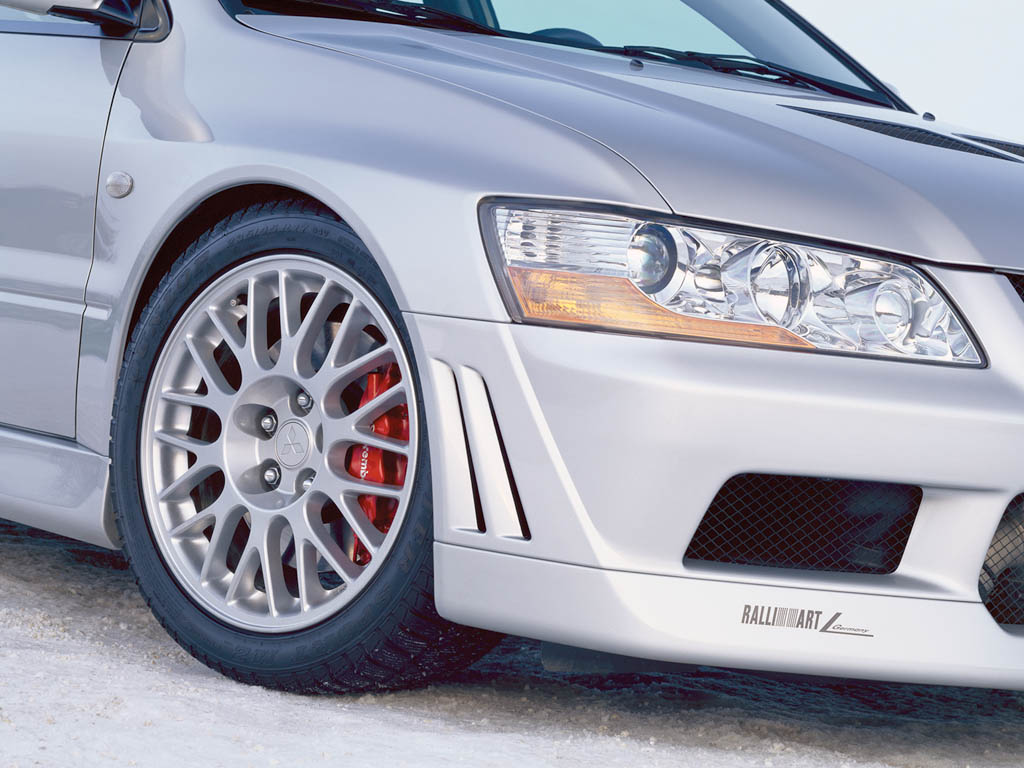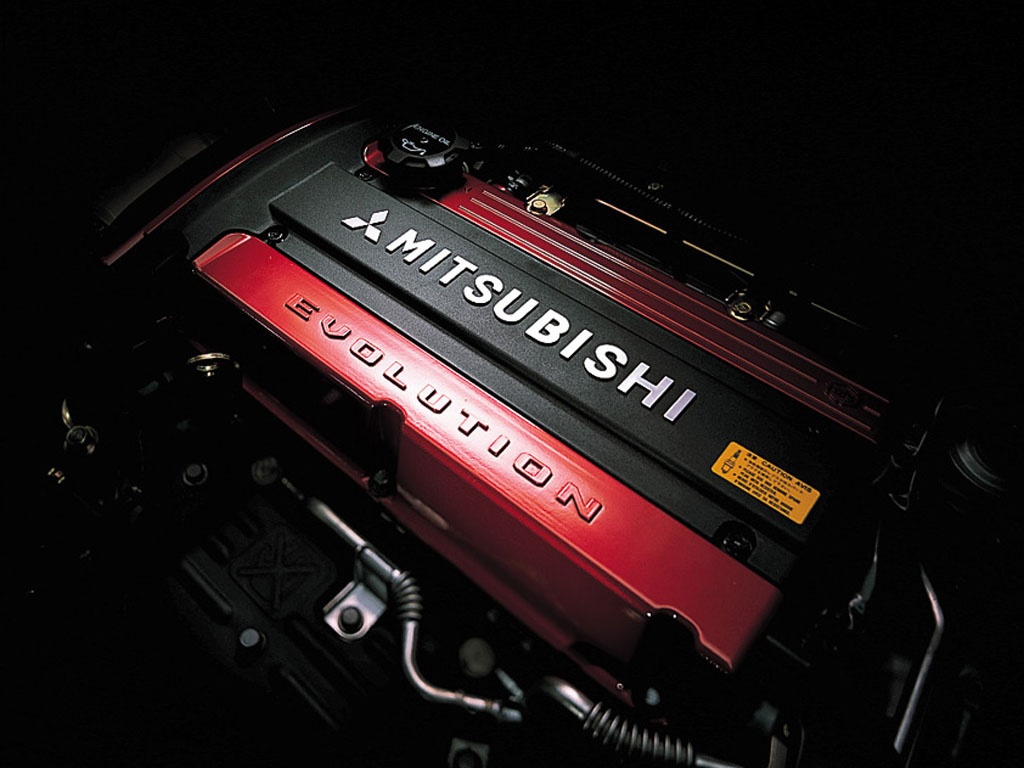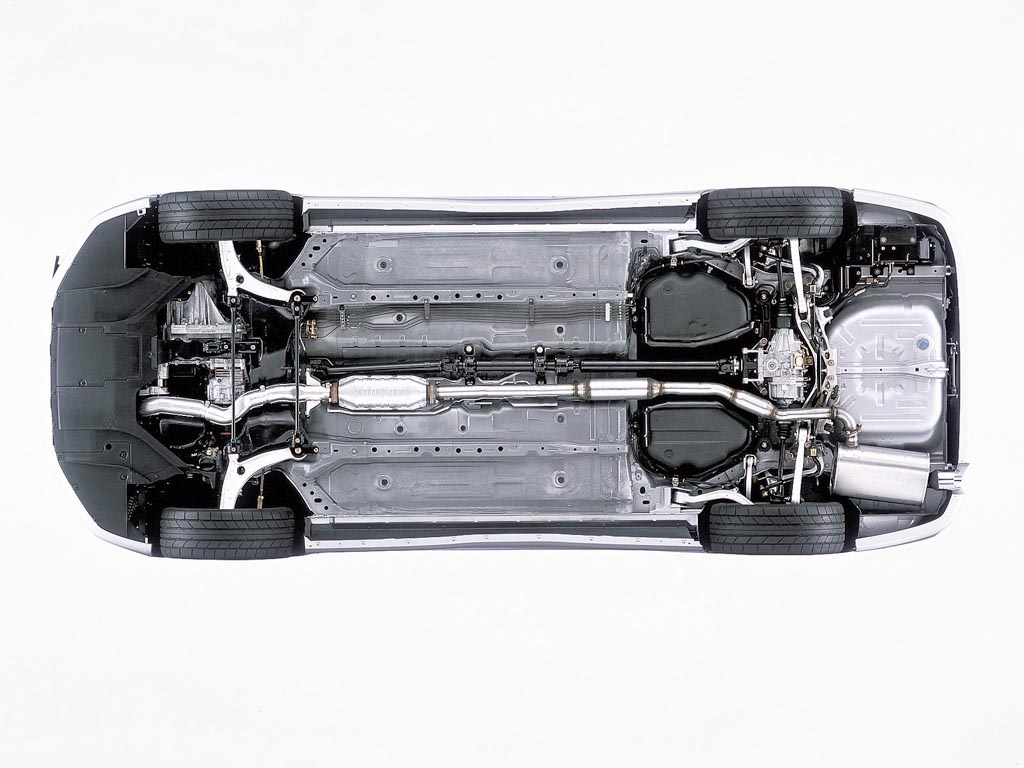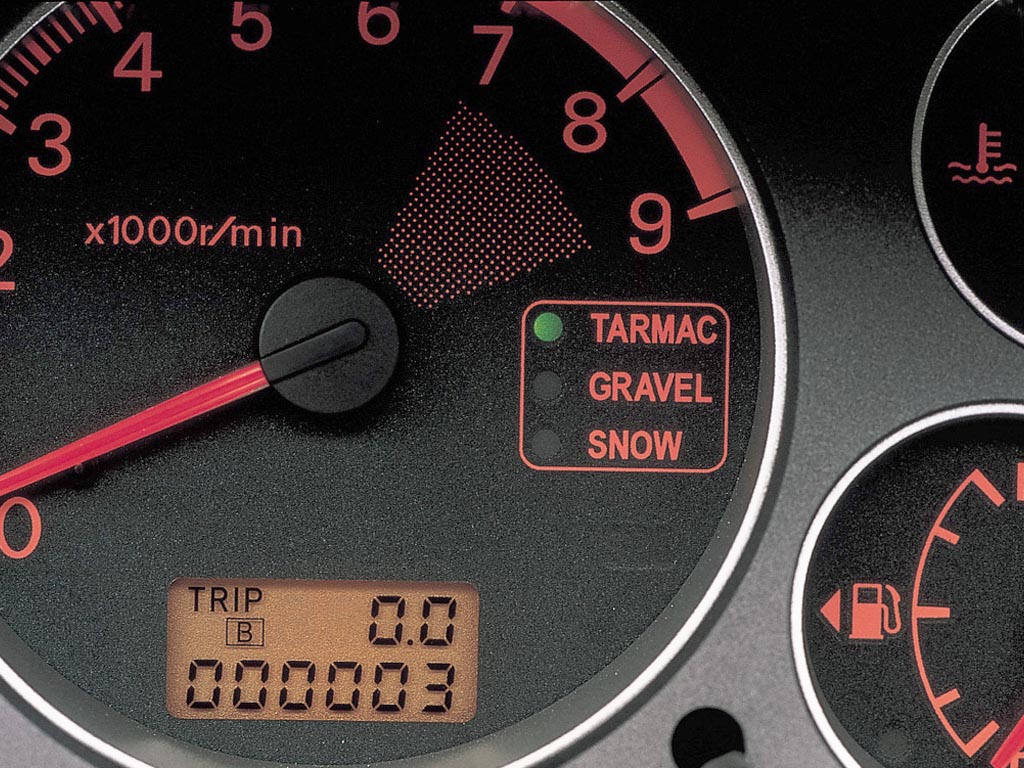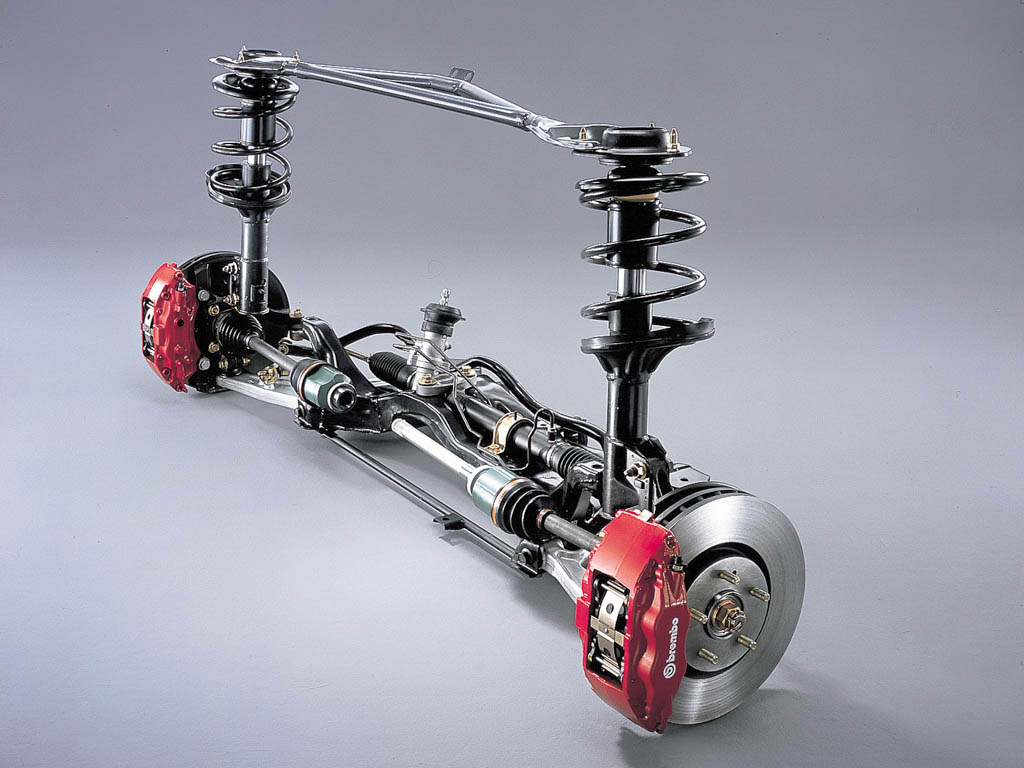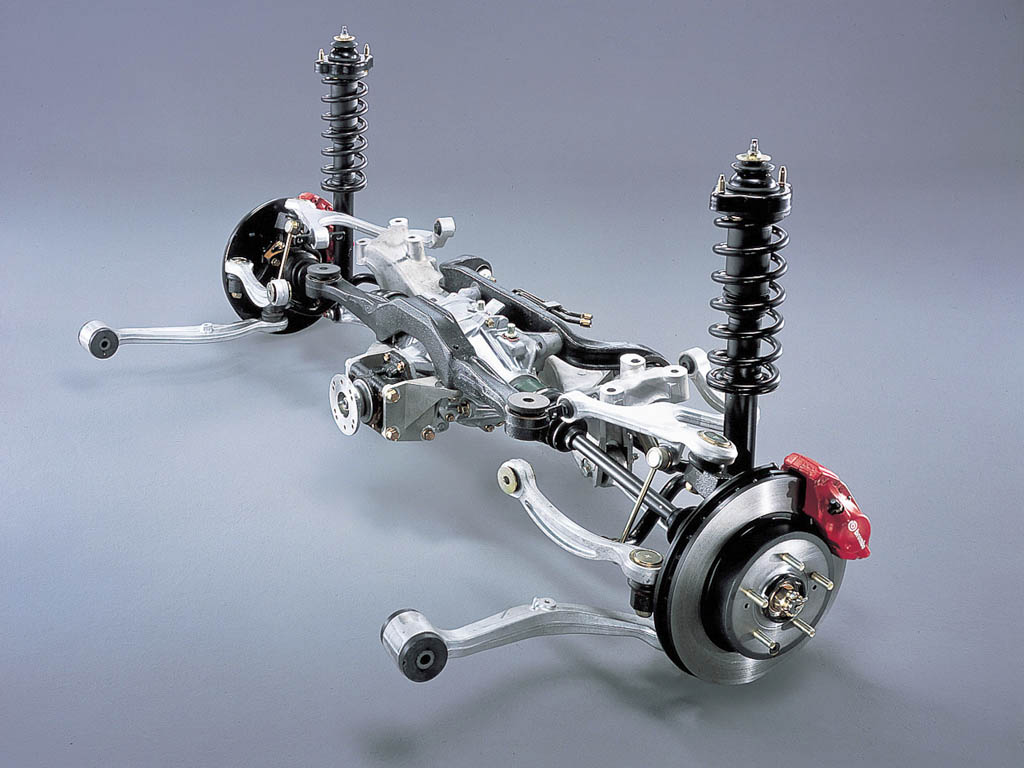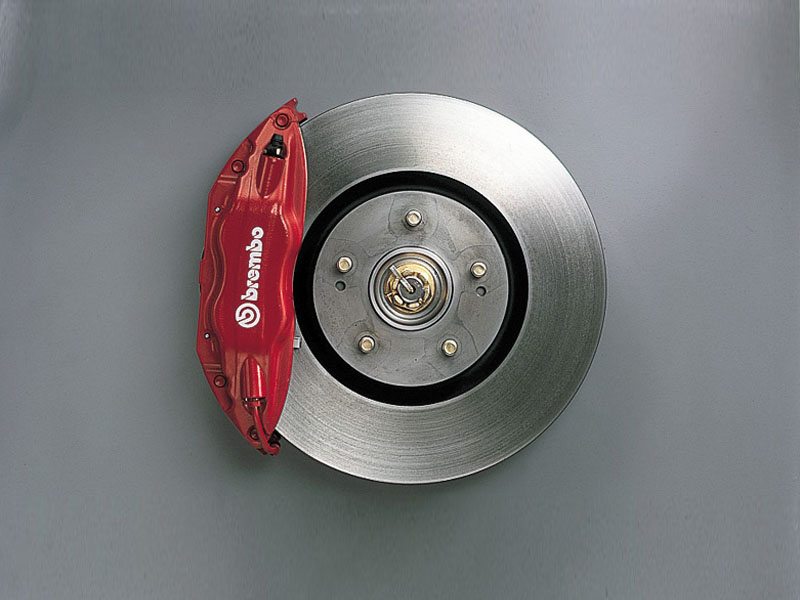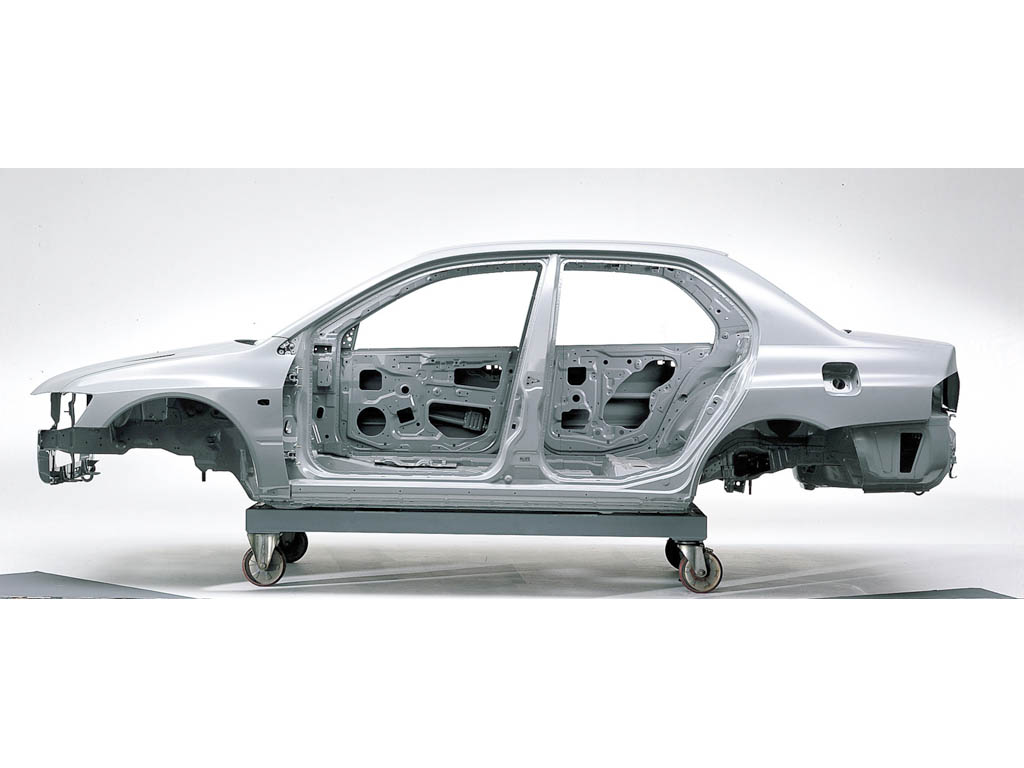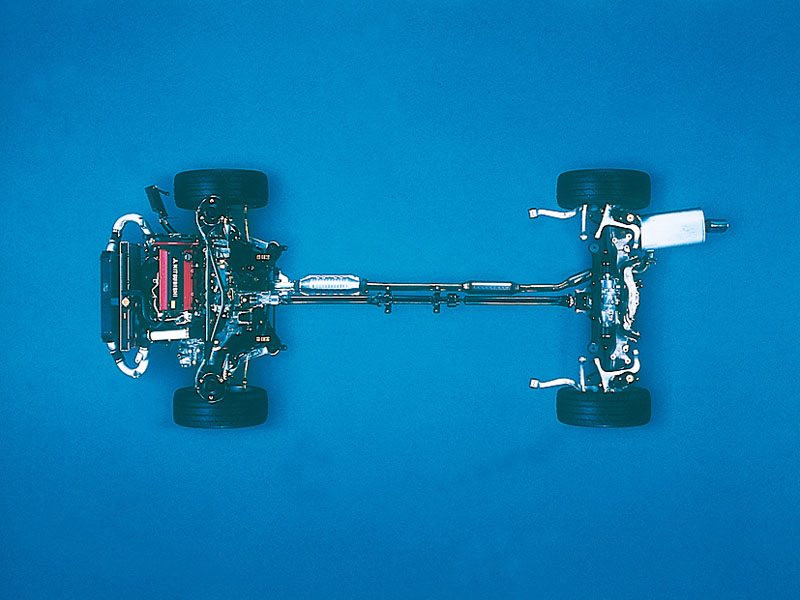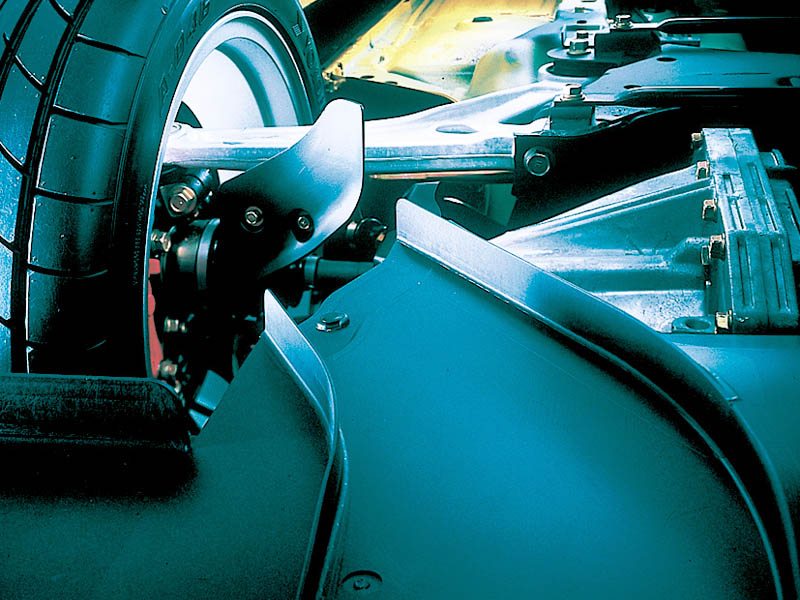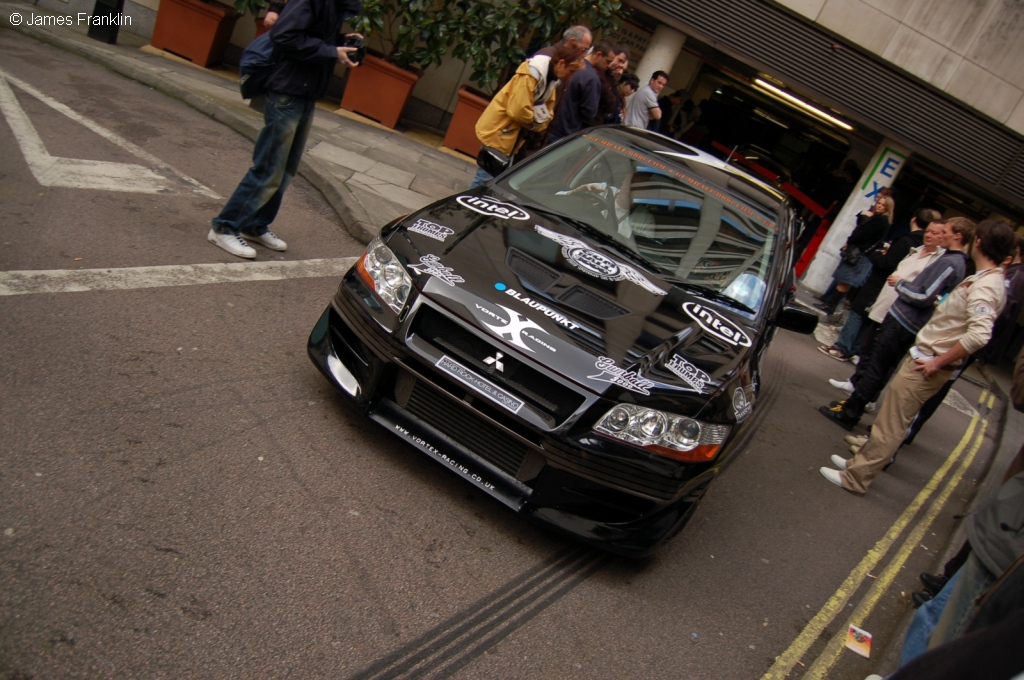2001 Mitsubishi Lancer Evolution VII
The Lancer Evolution series debuted in October 1992 sporting a lightweight and compact 4-door sedan body and powered by a 2-liter intercooler-turbocharged engine that delivered gutsy torque to the tires via a hi-performance 4-wheel drive system.
From the first-generation model and through to Evolution VI Tommi Makinen Editionintroduced in 2000, the Lancer Evolution series has offered the highest levels of practical performance, driveability, reliability and durability. Over the years, the series has benefited from incorporation of improvements fuelled by feedback from Mitsubishi Motorsport’s active and highly successful participation in the World Rally Champoinship. These improvements have driven the on-going evolutionof the series as an ultra-performance 4-wheel drive sedan with a strong sports-oriented personality.Between 1993 and 2000, Lancer Evolution has chalked up a truly impressive track record inthe World Rally Championship: winning the Manufacturer’s Championship in 1998 and bringingace-pilot Tommi Makinen an unprecedented four Driver Championships in a row between 1996and 1999.
Derived from the body frame of the new Lancer Cedia compact sedan series launched last year, Lancer Evolution VII wraps all the engineering features developed over successive generations in a refined styling package. It comes loaded with an equipment and trim specification that provides the utility and quality expected in a 4-door sedan, and features many advanced mechanical components that stretch its performance.
Shouting its confidence-inspiring stability and eye catching presence, the Evolution VII’s optimized aerodynamic elements include a styling that smoothly integrates the nose into the rest of the body. Large side airdams and a reardeck spoiler with larger wing signal the Lancer’s agressive nature. The front and rear fenders sport an exclusive blister design to accommodate the wider track, wider-rim wheels and longer wheel stroke. The aluminum engine hood reduces weight while optimally located heat extraction outlets and NACA ducts promote engine temperature control
Evolution VII features a new Active Center Differential using an electronically controlled variable multi-plate clutch. The ACD boasts a differential limiting capacity three times greater than that of the viscous coupling-type differential used to date. In addition, the ACD’s ability to tailor slippage for different driving conditions brings levels of steering response and traction control not possible with aviscous coupling differential. A 3-way manual override switch enables the driver toselect Tarmac, Gravel or Snow modes to suit his preferences or conditions.
Evolution VII retains the Active Yaw Control traction enhancement system that hasfully proven its worth since its introduction in Evolution IV in 1996. AYC uses an electronically controlled hydraulically actuated system to optimally control yaw moment in the body by regulating torque split in the rear differential to create atorque differential in the right and left rear wheels. This allows the vehicle to better trace the line chosen by the driver through corners, spreads tire load more evenly and also improves standing start and acceleration over slippery surfaces. In Evolution VII, integrated control of the ACD and AYC systems realizes a dramatic improvement in the balance between stearing response and traction in high G cornering.
Evolution VII’s body boasts a 50% increase in flexural rigidity – the result of stronger suspension anchorages and body frame joins, additional reinforcements in over 20 places and spot welds, and the use of strut tower bars. Together with the optimized suspension, these improvements underpin awesome levels of handling stability underall conditions.
For its power unit, Evolution VII retains the 4G63-type 2-liter 16-valve turbochargedengine that, benefiting from an abundance of under-the-gun feedback from WRC events, now attains the highest levels of maturity and refinement. Optimization of the turbocharger by reducing the twin-scroll turbine nozzle diameter cross section has resulted in a stable and consistent torque band.
Improvements to the engine’s induction and exhaust systems include: a reduction in back pressure with the use of a straighter exhaustpipe; and the use of a dual-mode muffler with a variable back pressure valve that cuts noise at normal engine speeds and back pressure at high engine speed. Modifications to the intake manifold and the intake port layout have reduced air intake resistance by 20%.
Evolution VII realizes a level of dynamic performance that surpasses even that of the Evolution VI Tommi Makinen Edition model. Complementing the 2-liter class-topping engine and the flatter torque curve, extensive measures have kept weight increases accompanying the larger body dimensions to an absolute minimum. The Evolution VII surpasses its predecessor in handling stability, with less understeer, more accurate and tauter response and higher cornering limits.
In Detail
| submitted by | Richard Owen |
| price $ | $ $25 500 USD |
| engine | 4G63 Turbocharged Inline-4 |
| aspiration | Front Transverse |
| valvetrain | DOHC 4 Valves / Cyl |
| displacement | 1997 cc / 121.9 in³ |
| bore | 85 mm / 3.35 in |
| stroke | 88 mm / 3.46 in |
| compression | 8.8:1 |
| power | 208.8 kw / 280.0 bhp @ 6500 rpm |
| specific output | 140.21 bhp per litre |
| bhp/weight | bhp per tonne |
| torque | 383 nm / 282.5 ft lbs @ 3500 rpm |
| driven wheels | Front Engine / 4WD |
| front tires | 235/45R17 |
| rear tires | 235/45R17 |
| front brakes | Brembro Vented Discs w/4 Pot Calipers, ABS & EBD |
| f brake size | x 320 mm / x 12.6 in |
| rear brakes | Brembro Vented Discs w/2 Pot Calipers, ABS & EBD |
| r brake size | x 300 mm / x 11.8 in |
| front wheels | F 43.2 x 20.3 cm / 17.0 x 8.0 in |
| rear wheels | R 43.2 x 20.3 cm / 17.0 x 8.0 in |
| steering | Rack & Pinion w/Power Assist |
| curb weight | 1400 kg / 3086 lbs |
| wheelbase | 2625 mm / 103.3 in |
| front track | 1515 mm / 59.6 in |
| rear track | 1515 mm / 59.6 in |
| length | 4455 mm / 175.4 in |
| width | 1770 mm / 69.7 in |
| height | 1450 mm / 57.1 in |
| transmission | W5M51 5-Speed Manual |
| gear ratios | 2.928:1, 1.950:1, 1.407:1, 1.031:1, 0.720:1, :1 |
| final drive | 4.529:1 |
| top speed | ~180 kph / 111.8 mph |


